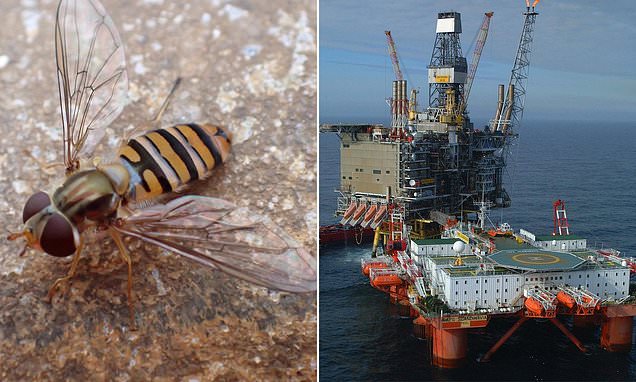Home / Environment / Hoverflies Hitching Rides on North Sea Oil Rigs to Boost Crop Resilience
Hoverflies Hitching Rides on North Sea Oil Rigs to Boost Crop Resilience
4 Oct
Summary
- North Sea oil rigs serving as migratory stop-off points for hoverflies
- Hoverflies carrying pollen from continental Europe to Scotland, Shetland, and Norway
- Pollen could help crops like potatoes and wheat adapt to climate change

As of 2025-10-04T18:23:05+00:00, scientists have made a surprising discovery about the relationship between the fossil fuel industry and nature. They have found that North Sea oil rigs are serving as unexpected migratory stop-off points for hoverflies traveling from northern Europe to Scotland.
The researchers, from Exeter University and University College London, were alerted to this curious phenomenon by rig inspectors and wildlife photographers who had observed thousands of hoverflies regularly gathering on the offshore structures. By analyzing the insects, the team found that the vast majority were carrying pollen from over 100 different plant species, many of which are native to Scotland.
This discovery is significant because hoverflies are known to be prolific pollinators, and the pollen they are transporting could help crops like potatoes, wheat, and other vital food sources adapt to the effects of climate change. By mixing in the genes of continental crops already thriving in hotter conditions, the process could make our own plants more resilient.
The hoverflies are estimated to be covering distances of up to 300 miles during their migrations, with the oil rigs acting as "stepping stones" for the long-distance insects. After a brief respite, they continue their journey towards the Shetland Islands and mainland Scotland, potentially providing valuable pollination services along the way.




